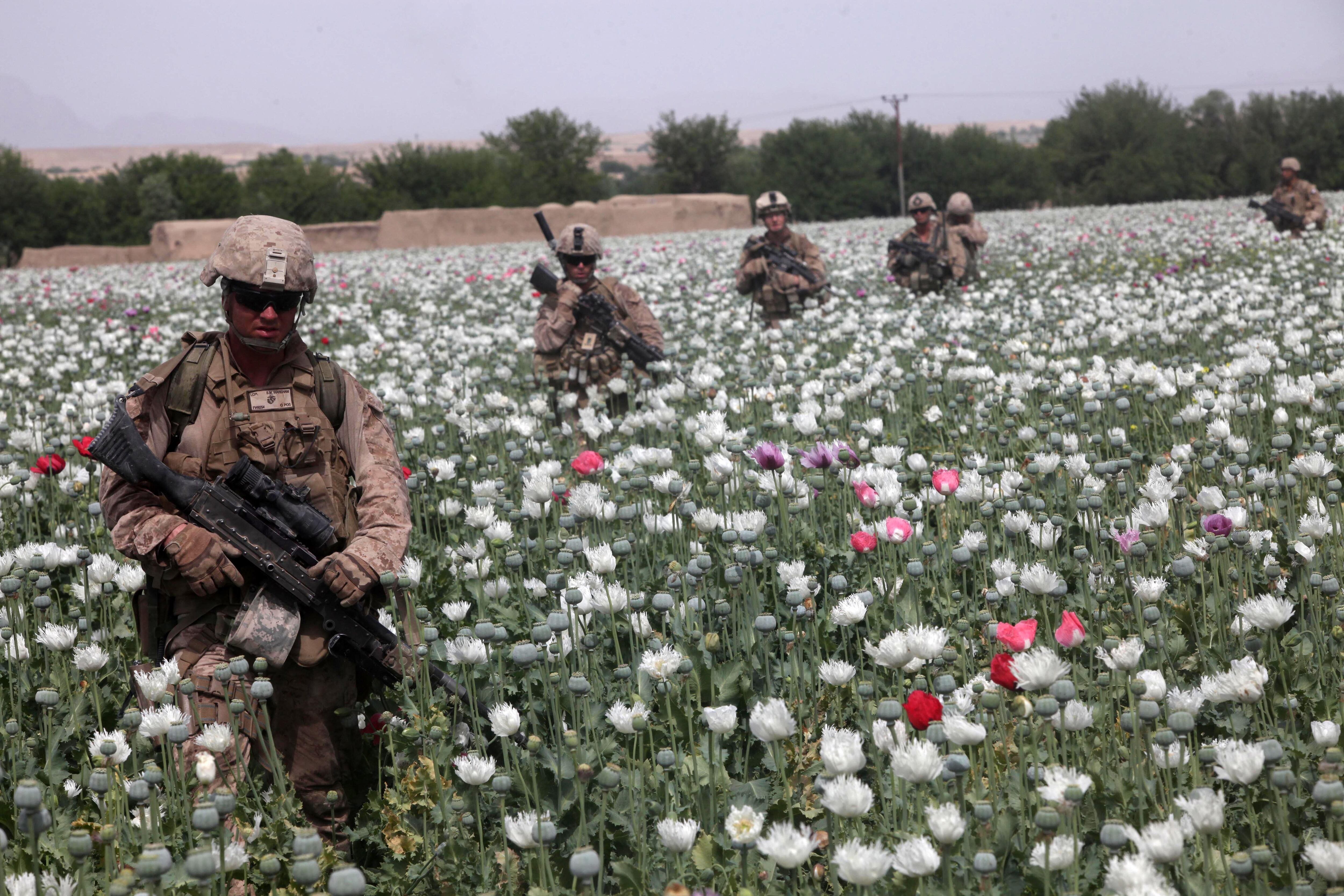You can get an award for practically everything in the military, but member of the Texas State Guard thought it odd that the War on Drugs hasn’t been considered a military campaign ― so he created his own medal, and he’s trying to take it all the way.
Thomas Marriott, an Austin-based entrepreneur and 2nd lieutenant in his state’s part-time paramilitary organization, has petitioned the president to issue an executive order establishing the War on Drugs Service Medal for all federal and state military service members who have supported a counter-trafficking mission.
And before anyone starts ranting about a participation medal, he told Military Times in a Jan. 16 phone interview, he gets it.

“Military culture is definitely not interested in adding yet another medal to the whole fruit salad of medals,” Marriott said. "And people say, ‘That’s your job, you shouldn’t be rewarded for doing your job.' "
But by his count, he said, the War on Drugs is one of America’s longest ― almost five decades since President Richard Nixon declared it in 1971, making it longer than the Cold War ― as well as costly in life and limb, with thousands of casualties from missions around the world.
“I’m obviously not trying to upset anybody,” he said. “I’m just trying to honor that duty and sacrifice.”
The medal itself is a real thing you can buy for $55 on Marriott’s website, though it’s not authorized for wear on a uniform and isn’t endorsed by any official command.
He began working on the medal in 2015, while doing some family research. His father deployed during Operation Just Cause, the invasion of Panama in 1989, a mission to arrest dictator Manuel Noriega on drug trafficking charges.
He was surprised there wasn’t a medal for that and hundreds of other counter-drug missions troops have carried out, from training local forces in South America to destroy opium fields in Afghanistan.
To that end, Marriott considers over a dozen named operations in southern Afghanistan part of the War of Drugs, and their casualties part of the sacrifice in the name of that effort.
“I don’t have a clear answer and I think that’s kind of just the nature of war itself,” he said when asked why he considers Afghanistan a front of the War on Drugs, other than that the opium crop is a documented part of many of those missions.
The country also inspired the design of the medal, though Marriott acknowledges that the day-to-day military work and sheer man hours in the War on Drugs belongs to the Coast Guard.
“I went back and forth like, do I honor the duty part of it? Because the Coast Guard has probably at the most duty,” he said. “Or do I honor the sacrifice part of it?"
He ultimately went with the sacrifice aspect, sketching a Marine patrolling a poppy field.
So far he’s sold about a thousand medals since the store went live in 2017, he said, and he credits pop culture moments like Narcos TV show and the hunt for El Chapo with shoring up interest.
In an effort to go legit, he said, he created the White House petition and sent an email to the Office of National Drug Control Policy, though he has not heard from them beyond a confirmation that they received it.
There is precedent for an award like this, he found in his research. The Guatemalan government has awarded soldiers their Medal of the White Nun for helping to train their forces in counternarcotics, and several states award a counter-drug ribbon through the National Guard.
“It’s just a very interesting gap,” Marriott said.
As far as the naysayers, he said, he has a feeling that the official award would still have support, based on his observations of the Army’s own uniform regulation.
“It doesn’t require that soldiers actually wear the awards that they’re given, but yet they do,” he said. “People want that recognition for what they’ve done.”
Meghann Myers is the Pentagon bureau chief at Military Times. She covers operations, policy, personnel, leadership and other issues affecting service members.





